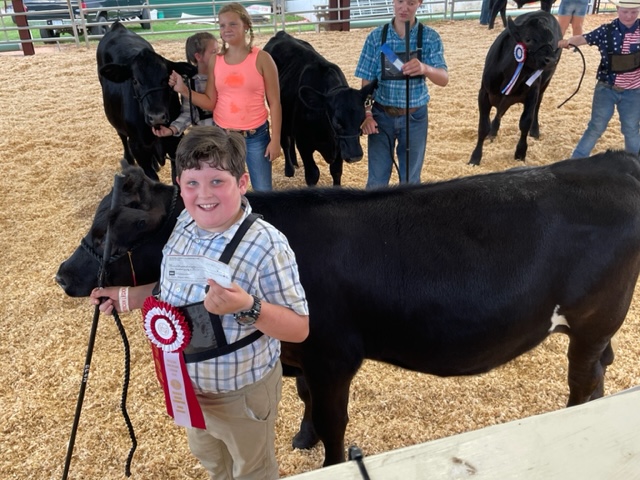4-H Calf-Steer Project
go.ncsu.edu/readext?905049
en Español / em Português
El inglés es el idioma de control de esta página. En la medida en que haya algún conflicto entre la traducción al inglés y la traducción, el inglés prevalece.
Al hacer clic en el enlace de traducción se activa un servicio de traducción gratuito para convertir la página al español. Al igual que con cualquier traducción por Internet, la conversión no es sensible al contexto y puede que no traduzca el texto en su significado original. NC State Extension no garantiza la exactitud del texto traducido. Por favor, tenga en cuenta que algunas aplicaciones y/o servicios pueden no funcionar como se espera cuando se traducen.
Português
Inglês é o idioma de controle desta página. Na medida que haja algum conflito entre o texto original em Inglês e a tradução, o Inglês prevalece.
Ao clicar no link de tradução, um serviço gratuito de tradução será ativado para converter a página para o Português. Como em qualquer tradução pela internet, a conversão não é sensivel ao contexto e pode não ocorrer a tradução para o significado orginal. O serviço de Extensão da Carolina do Norte (NC State Extension) não garante a exatidão do texto traduzido. Por favor, observe que algumas funções ou serviços podem não funcionar como esperado após a tradução.
English
English is the controlling language of this page. To the extent there is any conflict between the English text and the translation, English controls.
Clicking on the translation link activates a free translation service to convert the page to Spanish. As with any Internet translation, the conversion is not context-sensitive and may not translate the text to its original meaning. NC State Extension does not guarantee the accuracy of the translated text. Please note that some applications and/or services may not function as expected when translated.
Collapse ▲To register for the Calf Project, youth will need to complete a short application (call 828-465-8240 to get one) and return it with payment of $150 to the Extension office by January 17. All participating youth are required to attend the Project Orientation on the evening of January 19. During the orientation, participating families will get more detailed information about preparing a place for the calf and caring for the calf during the first few weeks. Clinics are provided through the project duration for youth to get more instruction about showing and caring for their calf. Youth will have the chance to show their calf in at least two youth livestock shows during the spring and summer. The project concludes with youth showing their calf at the Catawba County Fair. The calves are sold following the final fair show, with the proceeds going back to each participant. Each youth will also need to record their experiences and submit a 4-H Project Book in the late Fall to conclude the project.
Youth participating will receive the 2-week old calf in early February. Youth will need to care for the calf and work with it daily to prepare it for showing. The calves are typically 50-75 pounds when youth receive them and will grow to weigh as much as 600 pounds by the fair. By participating in the project youth will learn about animal science and care needed for large livestock animals and also develop a sense of responsibility.
Youth are encouraged to participate in the 4-H Livestock Club to learn more about caring for livestock and connect with other farm families. The 4-H Livestock Club meets on the 1st Monday of the month at 6:30 p.m. At the Agricultural Resources Center. The family-oriented club is for youth ages 5-18 and is the oldest chartered 4-H club in Catawba County. Alisha Lidke is the leader for the 4-H Livestock Club and chairs the Calf Project Committee.





